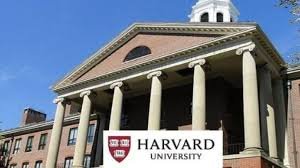Harvard University has come under fire for alleged mishandling of funds and fostering an environment some say is unwelcoming to Jewish students. Former President Donald Trump has proposed redirecting $3 billion from Harvard’s endowment to trade and vocational schools, sparking renewed discussion about the value of alternative education paths.
Critics, including Trump, argue that Harvard’s $54 billion endowment and alleged political bias make it an unfit recipient of taxpayer support through grants and loans. Trump suggested the funds would be better used to support trade schools and programs that address critical labor shortages.
Mike Rowe, CEO of the Mike Rowe Works Foundation and host of People You Should Know, joined the debate, highlighting the urgent need for skilled labor in the U.S. Rowe noted that his foundation, which provides work ethic scholarships for trade education, has seen a tenfold increase in applications over the past year.
“The demand for skilled workers is skyrocketing,” Rowe said. “Industries like automotive repair, energy, and manufacturing are desperate for talent. For every five retirees, only two new workers enter the trades.”
Rowe pointed to massive labor shortages across industries:
- Maritime and defense sectors: 140,000 open positions.
- Automotive industry: 80,000 vacancies in repair and collision work.
- Energy and AI sectors: Hundreds of thousands of roles remain unfilled.
Rowe emphasized the growing recognition among younger generations and their parents of the benefits of trade careers. “Students are rethinking the value of a $150,000 degree for a job that may no longer exist,” he said.
He also highlighted innovative programs like TACT (Teaching Autism Community Trades), which trains neurodivergent individuals for skilled jobs. “These young men and women are loyal and hardworking. Programs like TACT not only close the skills gap but also offer hope and opportunities to underserved communities,” Rowe said.
Rowe argued that addressing the skills gap is critical for the nation’s economic stability and security, especially in sectors like energy and defense. “We need to put this effort on steroids. It’s not just an economic issue—it’s a matter of national security,” he said.

